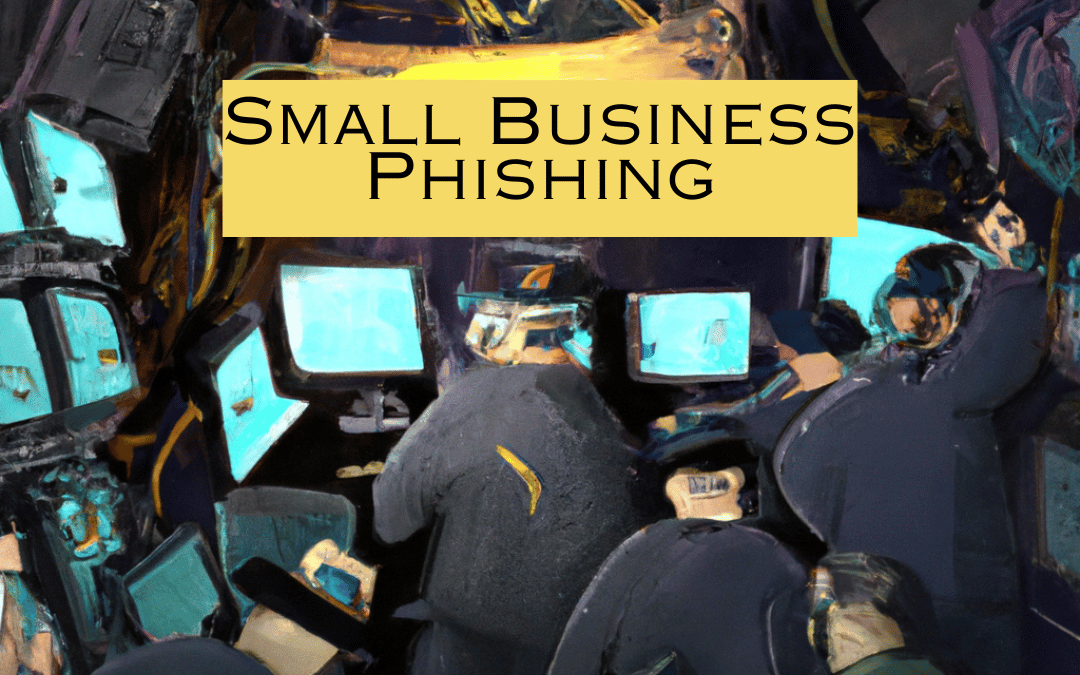Phishing is a deceptive technique cybercriminals use to trick individuals into revealing sensitive information, such as passwords and financial data. Small businesses are particularly vulnerable to these attacks, as they often lack the resources and expertise of larger organizations to implement robust cybersecurity measures. This blog post will explore real-world examples of successful phishing campaigns targeted toward small businesses, illustrating the methods used and their impact. By understanding these tactics, you can take steps to protect your business and customers from similar attacks.
Example 1: The Shark Gets Bit – Barbara Corcoran’s Phishing Attack
Shark Tank host and renowned business expert Barbara Corcoran fell victim to a phishing scam, losing $380,000. The scammers used an email address that appeared to belong to Corcoran’s assistant but was misspelled by one letter. The email contained a fake invoice from FFH Concept GmbH, a legitimate German company, for $388,700.11 for real estate renovations. This did not raise any alarms as Corcoran is known to invest in real estate. The bookkeeper, thinking nothing was suspicious, wired the money to the account listed in the email. The scam was only uncovered when the bookkeeper copied Corcoran’s actual assistant on a reply to the original invoice. Corcoran tweeted a lesson learned from the incident, advising people to be careful when wiring money. The type of scam Corcoran fell victim to is called a spear phishing attack, which specifically targets individuals or organizations to dupe them into sending money or personal information.
Example 2: The Famous Got Caught in a Phishing Net
A Georgia resident pleaded guilty to hacking numerous Apple accounts belonging to high-profile athletes and musicians, stealing their credit card information. The hacker targeted NBA and NFL players, college athletes, and rappers by sending thousands of phishing emails, many of whom fell for the scam.
The emails impersonated Apple customer support and asked the recipients to send their login credentials or the answers to their security challenges. The hacker then used the victims’ credit card information to accumulate thousands of dollars in personal expenses and money transfers.
Example 3: The Bogus Invoice Scam Targeting ABC Company
ABC Company, a small business specializing in manufacturing, fell victim to a phishing attack when an employee received an email appearing to be from a trusted supplier. The email contained an attached invoice with an urgent payment request. The employee, believing the email to be genuine, clicked on the attachment, inadvertently downloading malware onto their computer.
The phishing email had a subject line that read “Urgent: Invoice #12345 Due,” creating a sense of urgency to prompt the employee to open the attachment. The message content appeared professional and legitimate, with the company’s logo and contact information. However, the attached file contained a hidden payload designed to compromise the company’s network.
As a result of the attack, the cybercriminals gained access to sensitive company data, including customer records and financial information. This breach resulted in significant financial losses for the company and damaged its reputation with customers.
Example 4: The CEO Impersonation Attack on XYZ Retailers
XYZ Retailers, a small online retailer, was targeted by a phishing attack in which the attackers impersonated the company’s CEO. The attackers sent an email to the finance department, requesting an urgent wire transfer to a new vendor for a time-sensitive project.
The email’s subject line read, “URGENT: Wire Transfer Needed Today,” and the message content convincingly mimicked the CEO’s writing style and tone. The email also contained a link to a fake vendor website, designed to look like a legitimate site.
Believing the request to be genuine, the finance department initiated the wire transfer, only to discover later that they had sent the funds to a fraudulent account. This attack resulted in a significant financial loss for the company and highlighted the need for better employee training and awareness of phishing tactics.
Example 5: The Spear Phishing Attack on LMN Services
LMN Services, a small IT services provider, fell victim to a spear-phishing attack targeting specific employees within the company. The attackers researched the company and its employees on social media and other online platforms to craft highly personalized emails, which appeared to come from trusted sources.
The phishing emails had subject lines referencing recent company events or personal interests of the targeted employees. The message content contained requests to click on links or open attachments, which led to malicious websites or downloaded malware onto the employees’ computers.
As a result of this attack, the cybercriminals were able to infiltrate the company’s network and steal sensitive client data. This breach not only impacted LMN Services but also put their clients at risk, damaging the company’s reputation and client relationships.
Prevention Tips
To protect your small business from falling victim to phishing attacks, consider implementing the following measures:
- Educate employees about phishing tactics and encourage them to be cautious when opening emails from unknown sources or clicking on links and attachments.
- Implement security software, such as antivirus programs and email filters, to help detect and block potential phishing emails.
- Implement strong password policies and encourage the use of two-factor authentication (2FA) to protect sensitive accounts.
- Regularly update and patch software to protect against known vulnerabilities that attackers may exploit.
- Develop an incident response plan to help your business respond effectively to a potential phishing attack or data breach.
Conclusion
Understanding the tactics used in phishing attacks and their potential impact on small businesses is crucial for protecting your organization and its customers. By staying vigilant and implementing the prevention tips outlined above, you can reduce the likelihood of falling victim to these attacks and safeguard your business’s valuable data and reputation.


